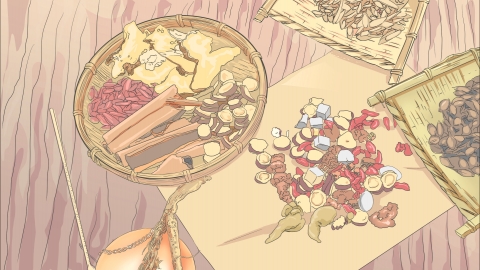Do Chinese herbal medicines have side effects?
Generally, traditional Chinese medicine (TCM) may have certain side effects. These side effects include gastrointestinal discomfort, allergic reactions, liver and kidney damage, drug dependence, and effects on the hematopoietic system. A detailed analysis is as follows:

1. Gastrointestinal Discomfort
Many components of traditional Chinese medicine may irritate the gastrointestinal mucosa, affecting normal digestive and absorptive functions. For example, some bitter and cold-natured herbs may impair the yang energy of the spleen and stomach, affecting gastrointestinal motility and secretion of digestive fluids. Common symptoms include nausea, vomiting, abdominal pain, diarrhea, and loss of appetite. Generally, these symptoms may gradually subside after discontinuation of the medication or adjustment of the dosage or administration method.
2. Allergic Reactions
Some individuals may be allergic to specific components in certain herbal medicines. The immune system identifies these components as foreign antigens, triggering an immune response, producing antibodies that bind to antigens, and releasing inflammatory mediators such as histamine, which leads to allergic symptoms like rashes, itching, erythema, and hives.
3. Liver and Kidney Damage
Most traditional Chinese medicines require metabolism and detoxification by the liver and kidneys. Some herbal components may have toxic effects on liver and kidney cells, affecting their normal functions. For example, TCMs containing aristolochic acid, such as Guanmutong and Aristolochia (Madouling), may damage renal tubules and interstitial tissues when used long-term or in large doses, leading to renal failure.
4. Drug Dependence
Certain TCMs with addictive potential may lead to physical adaptation and dependence when used over a long period. Sudden discontinuation of the medication may cause a series of uncomfortable symptoms, known as withdrawal reactions. Patients may experience restlessness, tearing, runny nose, yawning, abdominal pain, diarrhea, and other withdrawal symptoms after stopping the medication.
5. Effects on the Hematopoietic System
Some traditional Chinese medicines may affect blood composition and function, interfering with the proliferation and differentiation of hematopoietic stem cells or influencing coagulation mechanisms. For instance, Tripterygium wilfordii (Leigongteng) may suppress bone marrow hematopoietic function, leading to reduced white blood cell and platelet counts. Patients may exhibit symptoms of anemia, such as pallor, dizziness, and fatigue. Severe hematopoietic system abnormalities can affect normal physiological functions of the body.
When using traditional Chinese medicine, it is essential to strictly follow medical guidance, pay attention to drug compatibility and dosage, and closely monitor bodily reactions to ensure safe and effective medication use.








